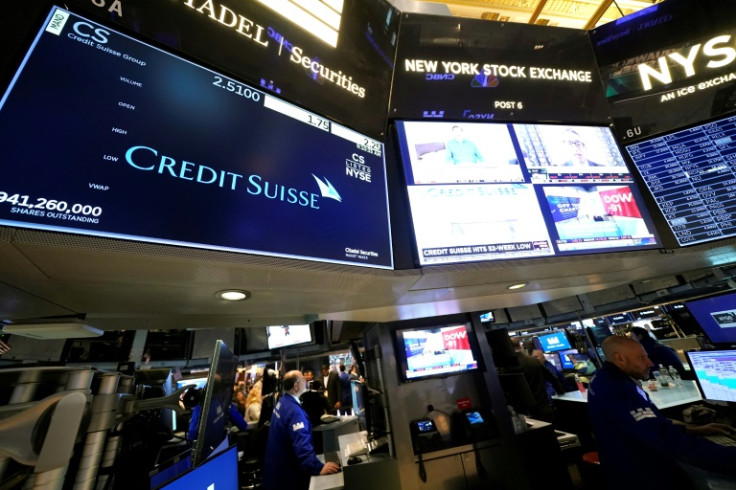Stocks Caught Between Better Earnings And Rising Interest Rates

U.S. stocks are caught between better earnings from prominent technology companies and rising interest rates around the globe, which confuse traders and investors over Wall Street's next big move.
Better earnings from tech giants like Alphabet, the parent of Google, and Meta, the parent of Facebook, fueled a euphoria among traders and investors, pushing major market indexes sharply higher.
Financial experts cheered the performance of both companies. "Alphabet, with its strong performance and robust growth in advertising revenue, is like a seasoned racehorse that consistently delivers," James Allen, CPA, CFP and CFEI at Billpin.com, told International Business Times. "It's a safe bet for those who prefer steady growth and a company with a diverse portfolio of successful products."
"Meta is like a wild stallion. It's betting big on the metaverse, a concept that could revolutionize how we interact with the digital world," he added. "But it's a high-risk, high-reward scenario. Meta could be a gold mine if the metaverse becomes the next big thing. But if it fails to take off, the investment could falter."
A stronger-than-expected U.S. GDP report and robust durable goods sales shook off fears of an impending recession, aiding the positive sentiment about corporate earnings. Second quarter 2023 GDP rose at an annual 2.2%, beating market expectations of 1.8%, while June durable goods orders rose at 0.6%, exceeding market expectations, too.
"The long-anticipated recession never seems to materialize," Jon Maier, chief investment officer of Global X ETFs, told IBT. "At the heart of the robust U.S. economy are consumers who are still spending. Additionally, inflation has declined, sparking hopes that the Fed has done its job and let the lag effects of monetary policy do their work. Further, a robust job market is continuing to support the economy. While growth is slowing, the economy is resilient, which portends a solid second half of the year."
Carol Schleif, chief investment officer of BMO Family Office, sees Thursday's better-than-expected GDP report supporting the soft-landing scenario, a situation of moderate growth and low inflation and unemployment — an ideal economy for equities. "The economy remains resilient, particularly because the unemployment rate is still low and consumers and businesses are still spending, and these trends are keeping the economy going," she told IBT.
Still, there are a couple of factors that spoiled the party. First was the continuation of short-term interest rate hikes by the Federal Reserve and the European Central Bank (ECB). They have now reached levels not seen since the early 2000s.
Second, there's a worldwide rise in long-term rates, reflected in Treasury bond yields. On Thursday afternoon, for instance, the 10-year U.S. Treasury bond crossed the psychological threshold of 4%, while the corresponding German yields crossed the 2.5% mark. Even the Japanese 10-year Treasury bond yields gained traction, approaching the 0.60% mark.
While higher earnings are a tailwind for stocks, higher interest rates are a headwind, making investing in risky assets like stocks less appealing to Treasury bills and Treasury bond investments. And that could explain the sharp reversal on Wall Street on Thursday afternoon, especially for interest rate-sensitive stocks.
Still, the tailwinds of a better economy and earnings have overpowered the headwinds of rising interest rates. Investors continue to buy in the deeps, with all major U.S. equity averages registering solid gains thus far this year.
Robert Johnson, professor at Creighton University's Heider College of Business, explained the reasons. "Many investors are having a difficult time figuring out why the stock market has been so strong, given that the Fed once again raised rates to a 22-year high," he told IBT. "But market activity reflects expectations, not realizations and the move was nearly universally anticipated. That is, the rate increase was essentially a non-event."
Johnson believes that better earnings and better economic reports have surprised skeptical investors who have stayed on the sidelines as equities rallied. Now they are rushing to buy stocks to catch up with bullish investors who have faith in the U.S. economy and U.S. stocks.
"Given the stronger than anticipated GDP numbers and robust earnings reports from key firms, some investors are committing funds to the stock market because of fear of missing out (FOMO)," he added.
© Copyright IBTimes 2024. All rights reserved.






















